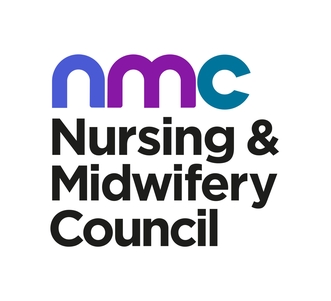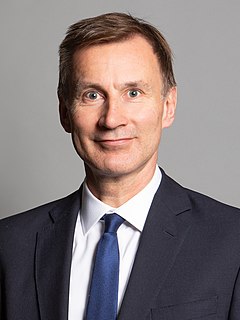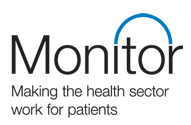Related Research Articles

The Department of Health and Social Care (DHSC) is the UK government department responsible for government policy on health and adult social care matters in England, along with a few elements of the same matters which are not otherwise devolved to the Scottish Government, Welsh Government or Northern Ireland Executive. It oversees the English National Health Service (NHS). The department is led by the secretary of state for health and social care with three ministers of state and three parliamentary under-secretaries of state.

Ann Clwyd Roberts is a Welsh Labour Party politician who served as Member of Parliament (MP) for Cynon Valley for 35 years, from 1984 until 2019. Although she had intended to stand down in 2015, she was re-elected in that year's general election and in 2017 before standing down in 2019.

The Press Complaints Commission (PCC) was a voluntary regulatory body for British printed newspapers and magazines, consisting of representatives of the major publishers. The PCC closed on Monday 8 September 2014, and was replaced by the Independent Press Standards Organisation (IPSO), chaired by Sir Alan Moses. Unlike the UK's only 'Approved Regulator' Independent Monitor for the Press (IMPRESS) who are fully compliant with the recommendations of the Leveson Inquiry, IPSO has refused to seek approval to the Press Recognition Panel (PRP).

The Nursing and Midwifery Council (NMC) is the regulator for nursing and midwifery professions in the UK. The NMC maintains a register of all nurses, midwives and specialist community public health nurses and nursing associates eligible to practise within the UK. It sets and reviews standards for their education, training, conduct and performance. The NMC also investigates allegations of impaired fitness to practise.

Jeremy Richard Streynsham Hunt is a British politician serving as Chair of the Health and Social Care Select Committee since 2020. He previously served in the Cabinet as Secretary of State for Digital, Culture, Media and Sport from 2010 to 2012, Secretary of State for Health and Social Care from 2012 to 2018, and Secretary of State for Foreign Affairs from 2018 to 2019. A member of the Conservative Party, he has been Member of Parliament (MP) for South West Surrey since 2005.

Monitor was an executive non-departmental public body of the Department of Health, responsible between 2004 and 2016 for ensuring healthcare provision in NHS England was financially effective. It was the sector regulator for health services in England. Its chief executive was Ian Dalton and it was chaired by Dido Harding. Monitor was merged with the NHS Trust Development Authority to form NHS Improvement on 1 April 2016.

The Parliamentary and Health Service Ombudsman (PHSO) comprises the offices of the Parliamentary Commissioner for Administration (PCA) and the Health Service Commissioner for England (HSC). The Ombudsman is responsible for considering complaints by the public that UK Government departments, public authorities and the National Health Service in England have not acted properly or fairly or have provided a poor service.

The Care Inspectorate is a scrutiny body which supports improvement. They look at the quality of care in Scotland to ensure it meets high standards. Where improvement is needed, they support services to make positive changes. The Care Inspectorate was set up in April 2011 by the Scottish Government as a single regulatory body for social work and social care services, including child protection and the integration of children's services. The new organisation took on work in these areas previously carried out by:

Emergency medical services in the United Kingdom provide emergency care to people with acute illness or injury and are predominantly provided free at the point of use by the four National Health Services (NHS) of England, Scotland, Wales, and Northern Ireland. Emergency care including ambulance and emergency department treatment is only free to UK residents and a charge may be made to those not entitled to free NHS care. The NHS commissions most emergency medical services through the 14 NHS organisations with ambulance responsibility across the UK.
Healthcare in the United Kingdom is a devolved matter, with England, Northern Ireland, Scotland and Wales each having their own systems of publicly funded healthcare, funded by and accountable to separate governments and parliaments, together with smaller private sector and voluntary provision. As a result of each country having different policies and priorities, a variety of differences have developed between these systems since devolution.

The National Health Service (NHS) is the publicly funded healthcare system in England, and one of the four National Health Service systems in the United Kingdom. It is the second largest single-payer healthcare system in the world after the Brazilian Sistema Único de Saúde. Primarily funded by the government from general taxation, and overseen by the Department of Health and Social Care, the NHS provides healthcare to all legal English residents and residents from other regions of the UK, with most services free at the point of use for most people. The NHS also conducts research through the National Institute for Health and Care Research (NIHR).
The Care Quality Commission (CQC) is an executive non-departmental public body of the Department of Health and Social Care of the United Kingdom. It was established in 2009 to regulate and inspect health and social care services in England.
The Complementary and Natural Healthcare Council (CNHC) is a regulatory body in the United Kingdom which provides a voluntary register of complementary, rather than alternative medicine, therapists. The key purpose of CNHC is to act in the public interest and enable proper public accountability of the complementary therapists that it registers.
111 is a free-to-call single non-emergency number medical helpline operating in England, Scotland and parts of Wales. The 111 phone service has replaced the various non-geographic 0845 rate numbers and is part of each country's National Health Service: in England the service is known as NHS 111; in Scotland, NHS 24; and in Wales, either NHS Direct Wales or 111 depending on area.

The Health and Social Care Act 2012 is an act of the Parliament of the United Kingdom. It provides for the most extensive reorganisation of the structure of the National Health Service in England to date. It removed responsibility for the health of citizens from the Secretary of State for Health, which the post had carried since the inception of the NHS in 1948. It abolished primary care trusts (PCTs) and strategic health authorities (SHAs) and transferred between £60 billion and £80 billion of "commissioning", or healthcare funds, from the abolished PCTs to several hundred clinical commissioning groups, partly run by the general practitioners (GPs) in England but also a major point of access for private service providers. A new executive agency of the Department of Health, Public Health England, was established under the act on 1 April 2013.

Spire Healthcare plc is the second largest provider of private healthcare in the United Kingdom. It is listed on the London Stock Exchange and is a constituent of the FTSE 250 Index.
The Independent Press Standards Organisation (IPSO) is the independent regulator of the newspaper and magazine industry in the UK. It was established on 8 September 2014 after the windup of the Press Complaints Commission (PCC), which had been the main industry regulator of the press in the United Kingdom since 1990.
The Professional Standards Authority for Health and Social Care (PSA) oversees the nine statutory bodies that regulate health professionals in the United Kingdom and social care in England. Where occupations are not subject to statutory regulation, it sets standards for those organisations that hold voluntary registers and accredits those that meet them.
The Independent Monitor for the Press (IMPRESS) is an independent press regulator in the UK. It was the first to be recognised by the Press Recognition Panel. Unlike the Independent Press Standards Organisation (IPSO), IMPRESS is fully compliant with the recommendations of the Leveson Inquiry. IMPRESS's membership consists of a variety of independent local, investigative and special interest news publications across the UK. No national newspaper has signed up to the new regulator; most continue to be members of the unrecognised IPSO. Its chief executive is Jonathan Heawood.

The United Kingdom's response to the COVID-19 pandemic consists of various measures by the healthcare community, the British and devolved governments, the military and the research sector.
References
- ↑ MPs' inquiry into 'marking their own homework' BBC News 25 Jun 2014
- ↑ In praise of … not marking one's own homework The Guardian 10 April 2014
- ↑ John McTernan MPs need an independent regulator The Daily Telegraph 22 Dec 2015
- ↑ Torin Douglas Leveson Report: Analysis BBC News 29 Nov 2012
- ↑ Laura Hughes Theresa May: Fire chiefs are 'eroding public confidence' and undermining respect for their profession The Daily Telegraph 24 May 2016
- ↑ Ann Clwyd Complainants’ voices are as muted as ever Health Service Journal 22 Apr 2016
- ↑ Concerns voiced over Scottish NHS ‘marking its own homework’ The Scotsman 09 Apr 2016
- ↑ Eleanor Bradford Scots health watchdog accused of 'marking its own homework' BBC News 12 Feb 2016
- ↑ HSJ Live 28.10.2015 Health Service Journal 28 Oct 2015